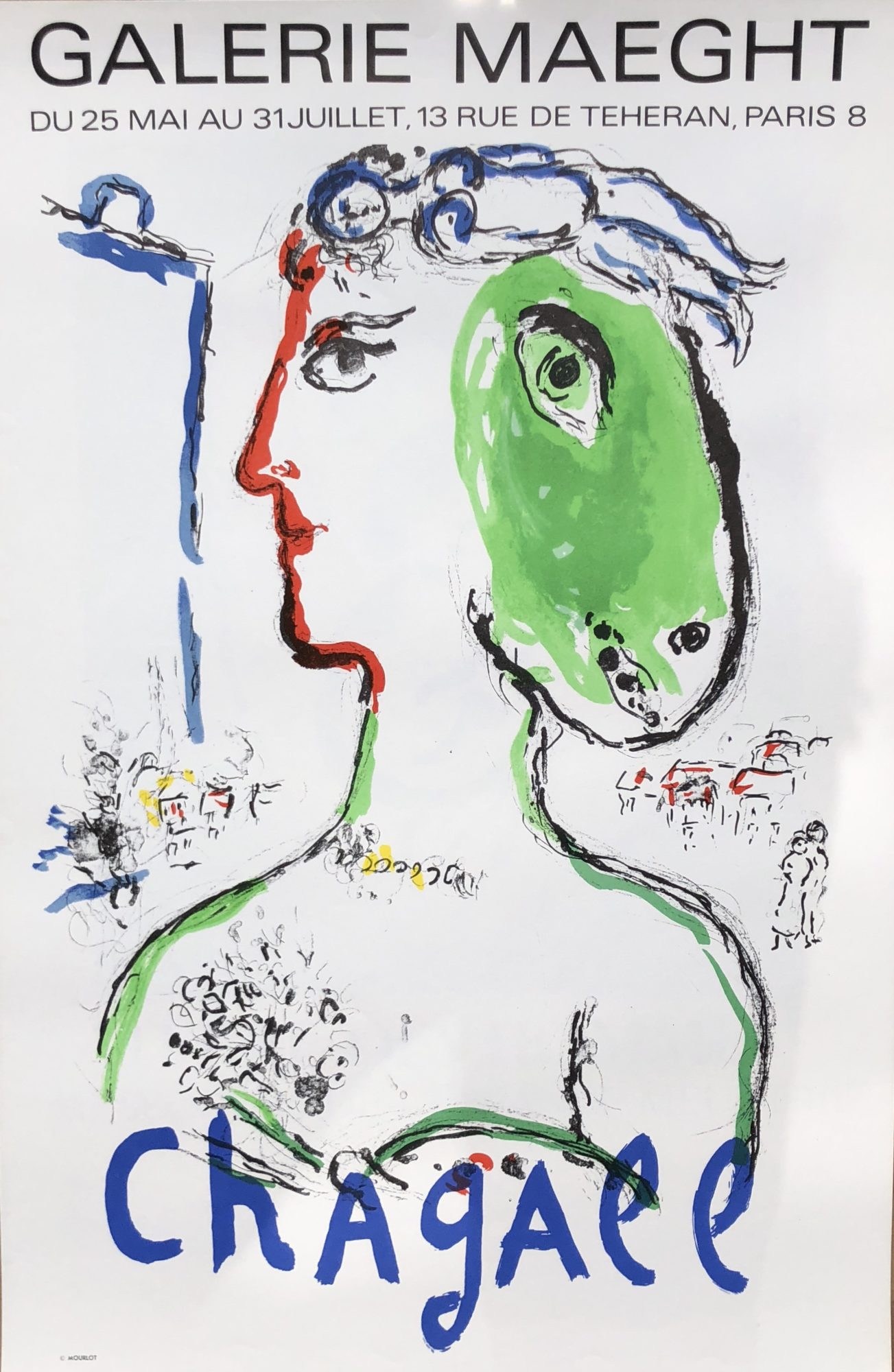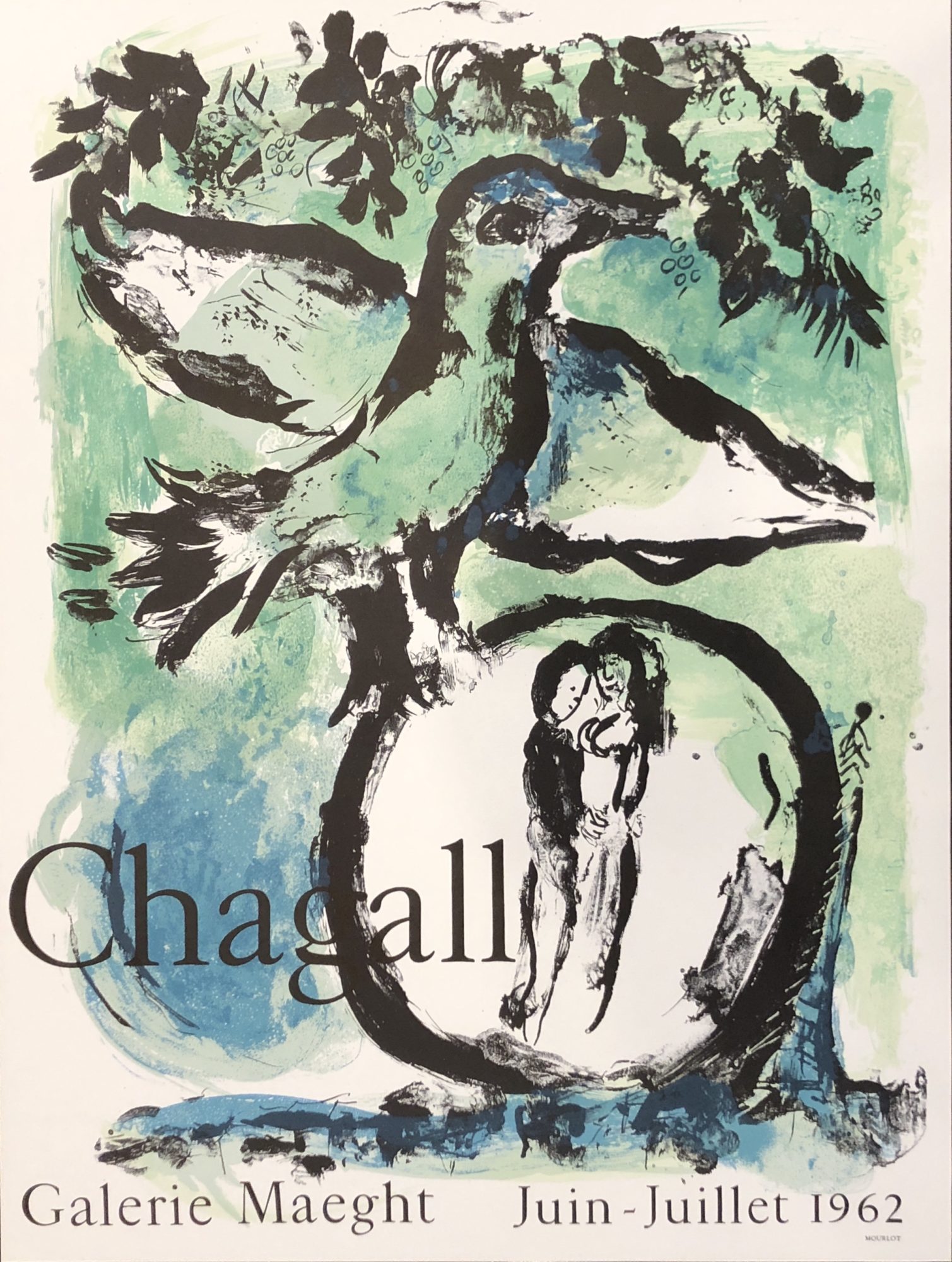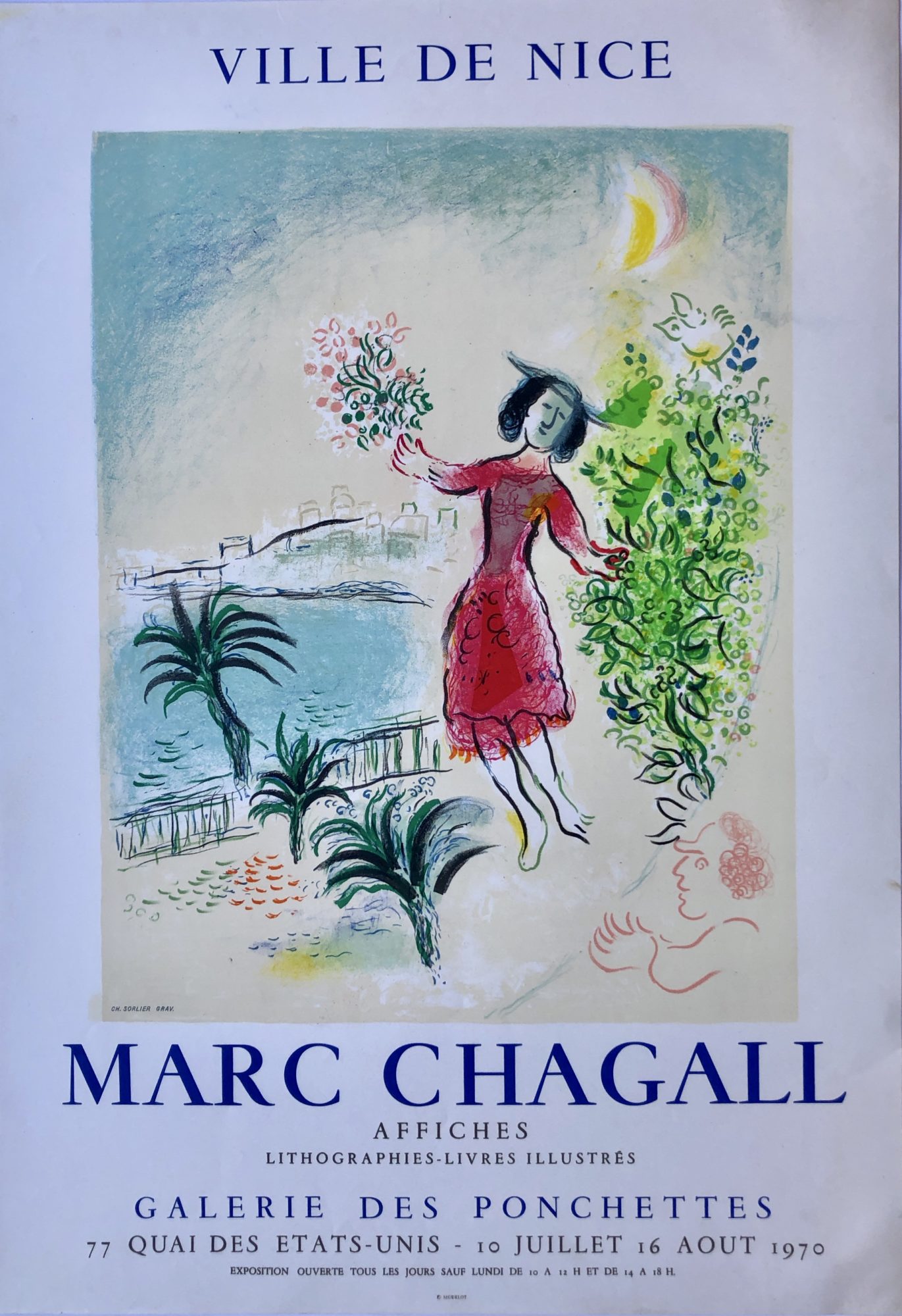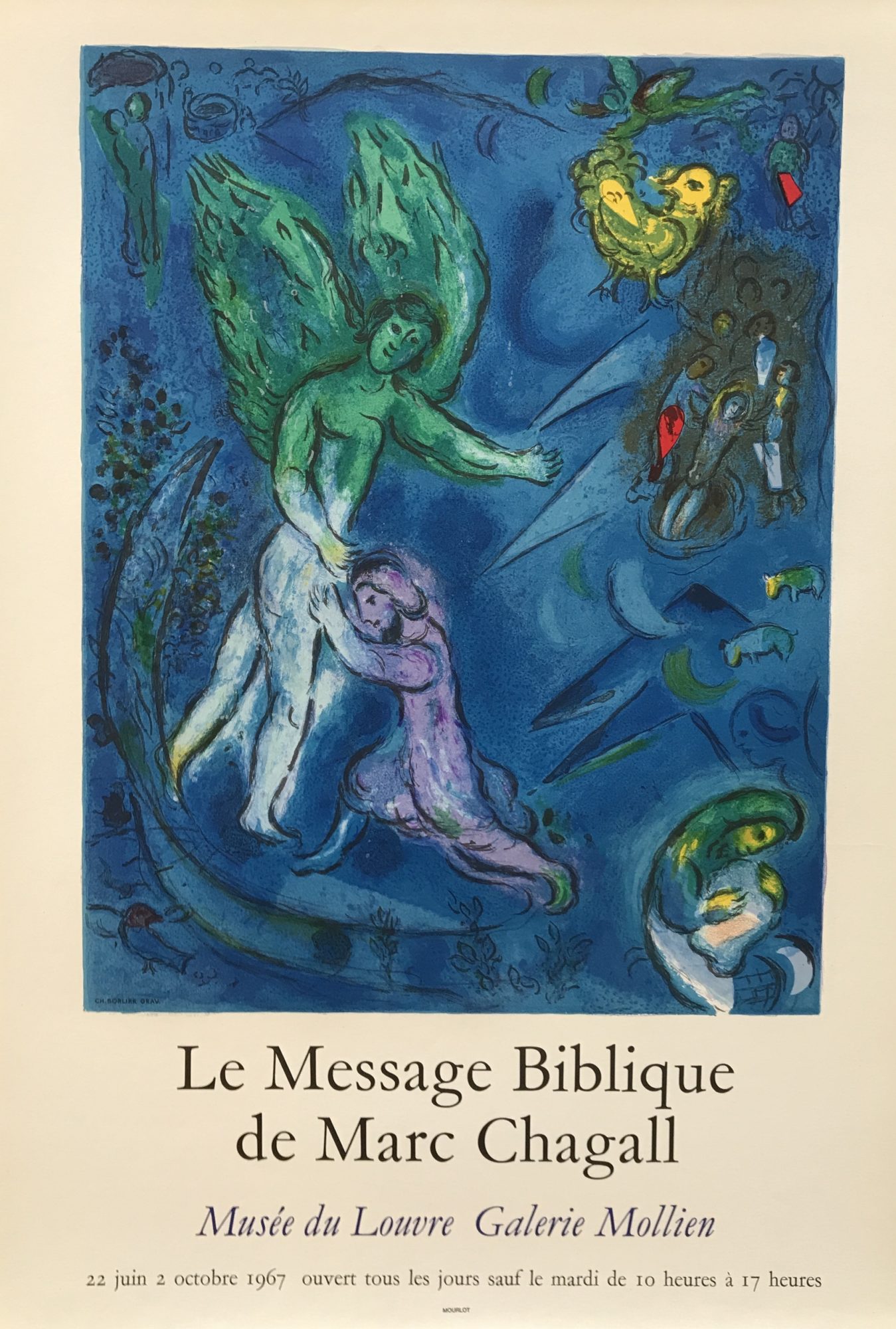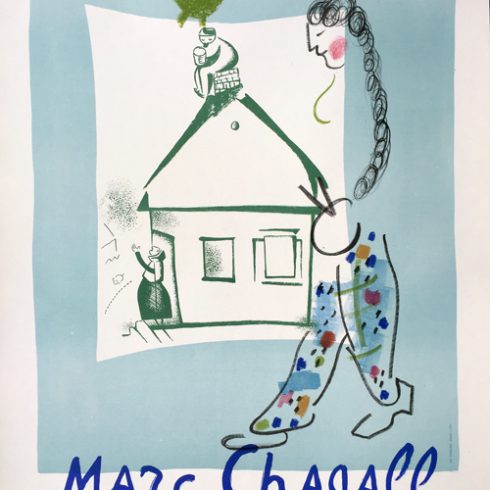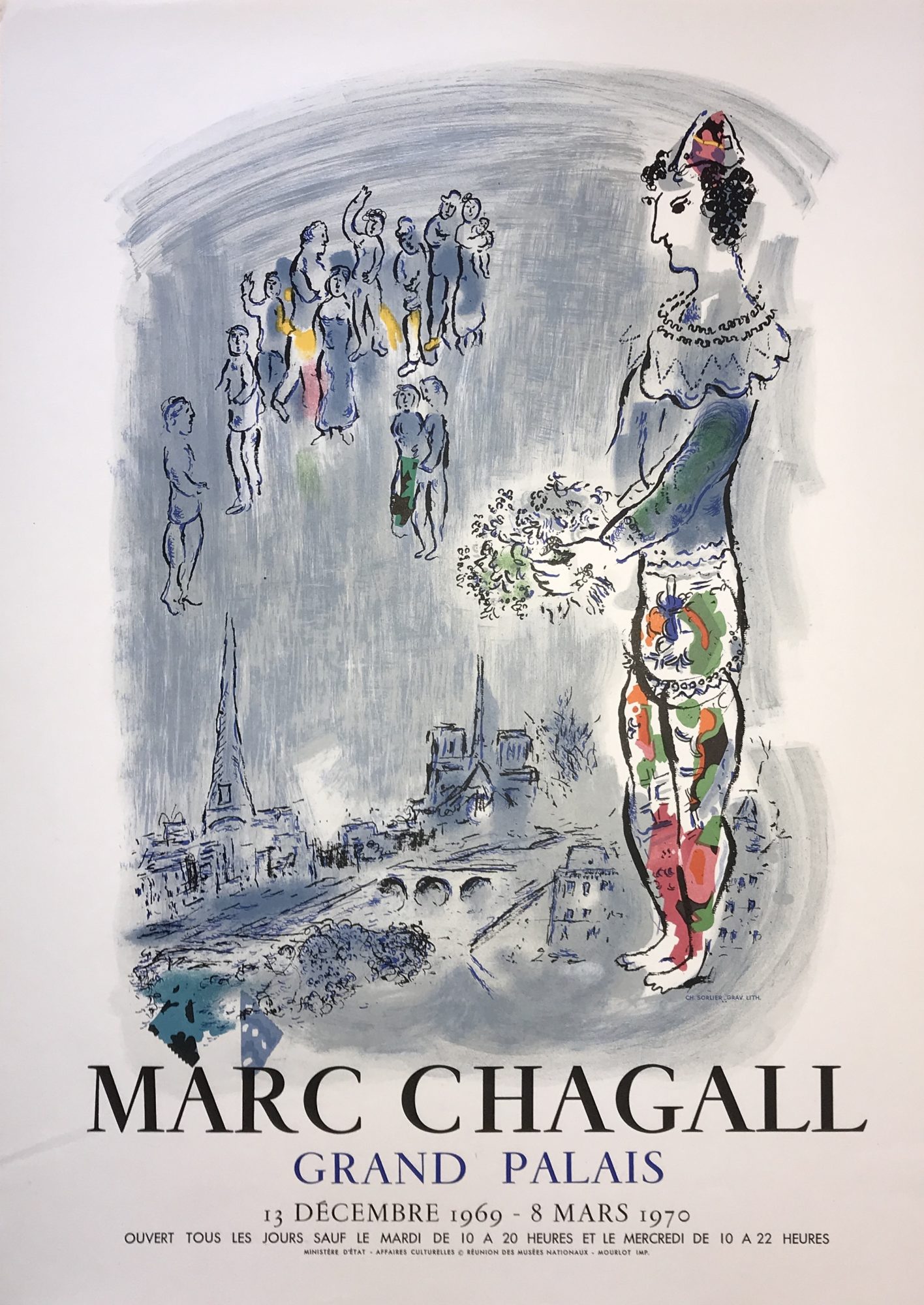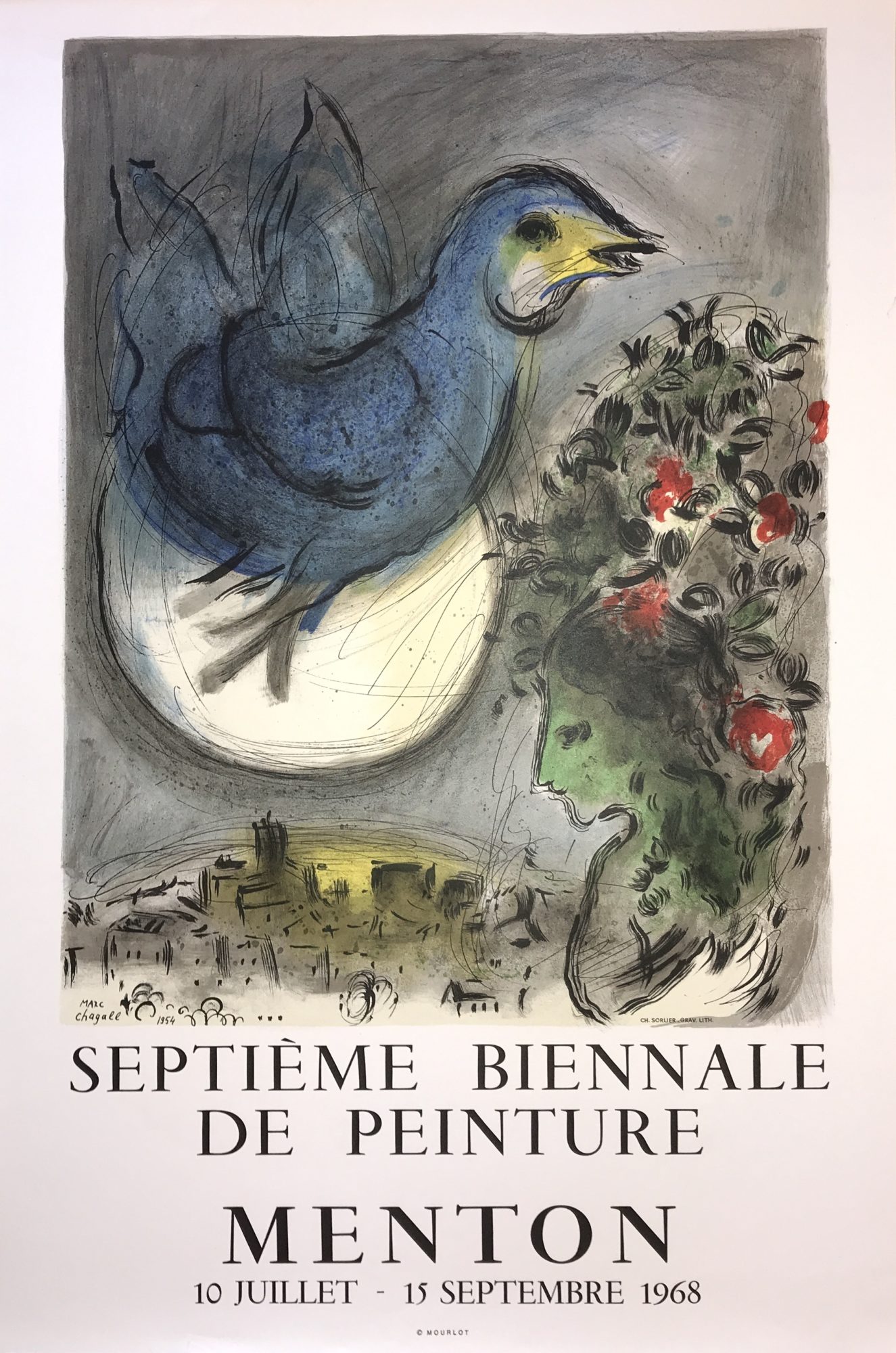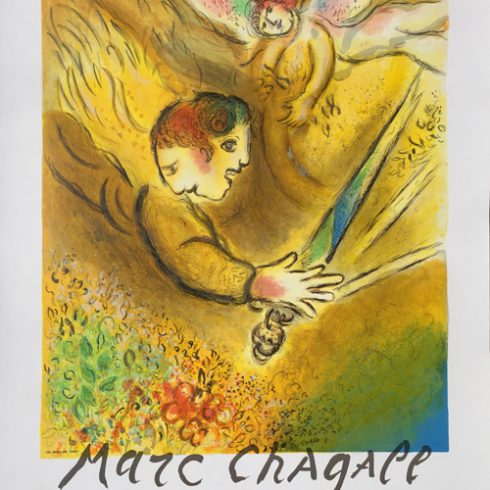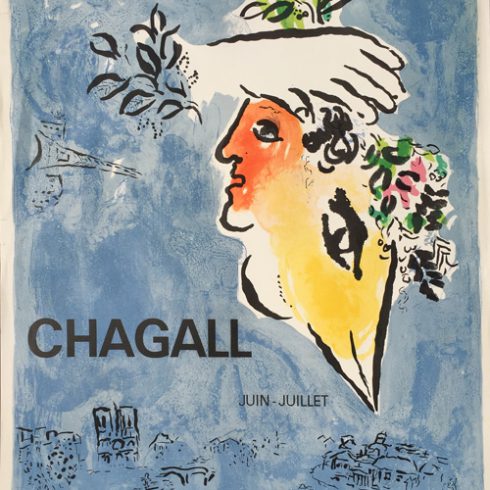The Artist as a Phoenix
The Artist as a Phoenix, 1972 is a Lithograph poster by Marc Chagall. This poster was created for a one-man show at the Maeght Gallery in Paris. This Lithograph poster is apart of an edition of 5000. This poster was printed by Atelier Mourlot, Paris and published by Maeght, Paris. Sorlier 59.
Chagall’s style has been described as a hybrid of Cubism, Fauvism, and Symbolism, and his supernatural subjects are thought to have significantly influenced the Surrealists. Though he actively engaged in the Parisian artistic community, art for Chagall was first and foremost a means of personal expression. He preferred to be considered separately from other artists, his imagery and allegory uniquely his own.
Marc Chagall was a French-Russian artist whose work anticipated the dream-like imagery of Surrealism. Over the course of his career Chagall developed the poetic, amorphous, and deeply personal visual language evident in the painting I and the Village (1911). “When I am finishing a picture, I hold some God-made object up to it—a rock, a flower, the branch of a tree or my hand as a final test,” he said. “If the painting stands up beside a thing man cannot make, the painting is authentic. If there’s a clash between the two, it’s bad art.” Born Moishe Shagal on July 7, 1887 in Vitebsk, Russia (present-day Belarus) to a Hasidic Jewish family, the artist was raised immersed in Jewish culture and iconography.
| Title | The Artist As A Phoenix |
|---|---|
| Year | 1972 |
| Medium | Lithograph Poster |
| Edition | 5000 |
| Catalogue Raisonné | Sorlier 59 |
| Size | 31 x 20 (in) 78 x 51 (cm) |
| Price | Price upon Request |
Description
The Artist as a Phoenix, 1972 is a Lithograph poster by Marc Chagall. This poster was created for a one-man show at the Maeght Gallery in Paris. This Lithograph poster is apart of an edition of 5000. This poster was printed by Atelier Mourlot, Paris and published by Maeght, Paris. Sorlier 59.
Chagall’s style has been described as a hybrid of Cubism, Fauvism, and Symbolism, and his supernatural subjects are thought to have significantly influenced the Surrealists. Though he actively engaged in the Parisian artistic community, art for Chagall was first and foremost a means of personal expression. He preferred to be considered separately from other artists, his imagery and allegory uniquely his own.
Marc Chagall was a French-Russian artist whose work anticipated the dream-like imagery of Surrealism. Over the course of his career Chagall developed the poetic, amorphous, and deeply personal visual language evident in the painting I and the Village (1911). “When I am finishing a picture, I hold some God-made object up to it—a rock, a flower, the branch of a tree or my hand as a final test,” he said. “If the painting stands up beside a thing man cannot make, the painting is authentic. If there’s a clash between the two, it’s bad art.” Born Moishe Shagal on July 7, 1887 in Vitebsk, Russia (present-day Belarus) to a Hasidic Jewish family, the artist was raised immersed in Jewish culture and iconography.
Studying under the artist Yehuda Pen as a youth, the Judaic traditions and folklore of his hometown permeated Chagall’s paintings. After studying in St. Petersburg, the artist moved to Paris in 1910, where he quickly befriended members of the French avant-garde, including Robert Delaunay and Fernand Leger. Marc Chagall painted dream-like subjects rooted in personal history and Eastern European folklore.
Visiting Russia in 1914, the artist was prevented from returning to Paris due to the outbreak of World War I until 1926. In addition to his paintings, Chagall was also noted for his vibrant works in stained glass and lithography. Forced to flee Paris during World War II, Chagall lived in the United States and traveled through to Israel before returning to France in 1948.
Additional information
| Title | The Artist As A Phoenix |
|---|---|
| Year | 1972 |
| Medium | Lithograph Poster |
| Edition | 5000 |
| Catalogue Raisonné | Sorlier 59 |
| Size | 31 x 20 (in) 78 x 51 (cm) |
| Price | Price upon Request |


